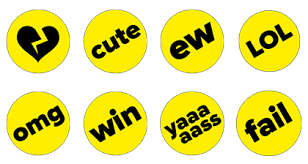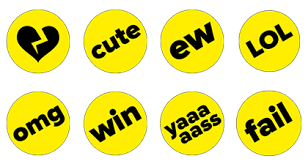What to Make of the Retreat of BuzzFeed News
It’s not really about Facebook or SPACs—it’s worse than that
Welcome to Second Rough Draft, a newsletter about journalism in our time, how it (often its business) is evolving, and the challenges it faces.
Once upon a time (in about 2014 and for some time thereafter), it seemed to me that BuzzFeed was the most interesting news company in the country. It understood how to command attention on Facebook better than anyone else, and, largely as a result, held out the promise of operating at a scale in digital delivery that no one else could seem to approach. It was attracting top journalistic talent—Ben Smith from Politico, Mark Schoofs from ProPublica—to lead its most serious news efforts. In short, if primarily advertising-supported quality news was possible online, BuzzFeed was ahead in the race to provide it.
In March, BuzzFeed, for which I have done a small amount of consulting, retreated significantly from the serious news business. Its top three editors resigned, a fourth having headed out the door just a few days earlier. It offered buyouts to everyone in its excellent Investigative, Politics, Science and Inequality groups. That includes everyone left from the work that won BuzzFeed News its first Pulitzer just eleven months ago.
When a business—or a business unit (BuzzFeed’s core trending/quizzes/listicles operation is profitable)—disappoints, the causes are almost always multiple. But I think most of the explanations to date of what didn’t work out at BuzzFeed News are both incorrect and falsely reassuring. Specifically, I don’t think this can be laid off on Facebook, or on BuzzFeed’s disappointing roll out as a public company via a SPAC.
Again, SPACs are not a business model
In one of the first of these columns, I wrote a year ago that “blind pools” (the original and more descriptive Wall Street name of what have come to be called Special Purpose Acquisition Companies) were not themselves a solution to the needs of journalism companies, and warned against their consideration by players ranging from the Athletic (since acquired by the New York Times), to Group Nine (since bought by Vox) and BuzzFeed.
But what BuzzFeed has suffered in the public markets (down by almost 60% since its debut) is a symptom, not a cause of its challenges. BuzzFeed took this route presumably because it needed cash, and because some investors were either looking for an exit or at least for much higher returns in the short term. Those pressures remain, and they, not some mysterious market force or financing technicality, are driving the company.
Facebook is part of the problem—but not in the way you’ve heard
Regular readers know that I am hardly a Facebook fan. But I don’t think we can pin this one on Facebook, at least not in the way that it has been in some quarters. Yes, Facebook some time ago changed its algorithm in ways that made BuzzFeed’s secret sauce less tasty, and yes, Facebook’s steady move away from news altogether (presumably as a way of minimizing controversy, and the resulting political pressure on its enormous profits) didn’t make the future of BuzzFeed News any brighter.
But the underlying issue for BuzzFeed News is that it fell short of its promise in the middle of the last decade: It achieved significant scale, but simply not enough. It came closer than most anyone else in news to being able to compete with Facebook, Google and Amazon—advertising’s contemporary oligopolists—for the sort of scale that might yield viability in the battle for ad dollars, but not close enough.
What does this mean?
If this analysis is correct, what are the implications for the news business beyond BuzzFeed? Sadly, I think they are larger than the commentary to date has indicated. Put most broadly, the retreat of BuzzFeed News suggests to me that quality national news supported solely by advertising is just not going to work.
That is not a death knell for quality news, but it does mean that pay meters/subscriptions seem to have won the game over pure scale, which will put even more pressure on those outlets which cannot produce enough high quality content to compete for large numbers of subscriptions. The recent third sale of Quartz, coming on the heels of it dropping its paywall, is just the latest illustration.
Meanwhile, those who participated on the news side of the BuzzFeed experiment should feel no shame, and no sense that they have wasted their time. Even when news companies fail to live up to expectations, they still leave behind all of the good done by their journalism— all of the impact, all of the eyes opened, stories told, communities served for a time. In the case of BuzzFeed News, that legacy is already significant.





Good analysis. You're right that scale is imply not enough.
According to Neiman Labs, about half of digital advertising revenue goes to providers of the "tech stack." Now advertising is mostly about finding an advertiser's targeted customers on their phones and computers based on their demographics and online tracking. That's a tech game.
The old game of using news to attract readers who would see an adjacent ad in a positive context is largely gone. Scale doesn't solve that. Sure, publishers can get some programmatic advertising dollars when the ad-tech companies direct ads that way, but that's at extremely low rates per page view.
Creating great content and news products that people want to pay for, and building a loyal repeat audience, can work at small scale and large. But it's not an easy thing to pull off and it requires focus on serving readers/viewers well above else, including above achieving page-view scale.